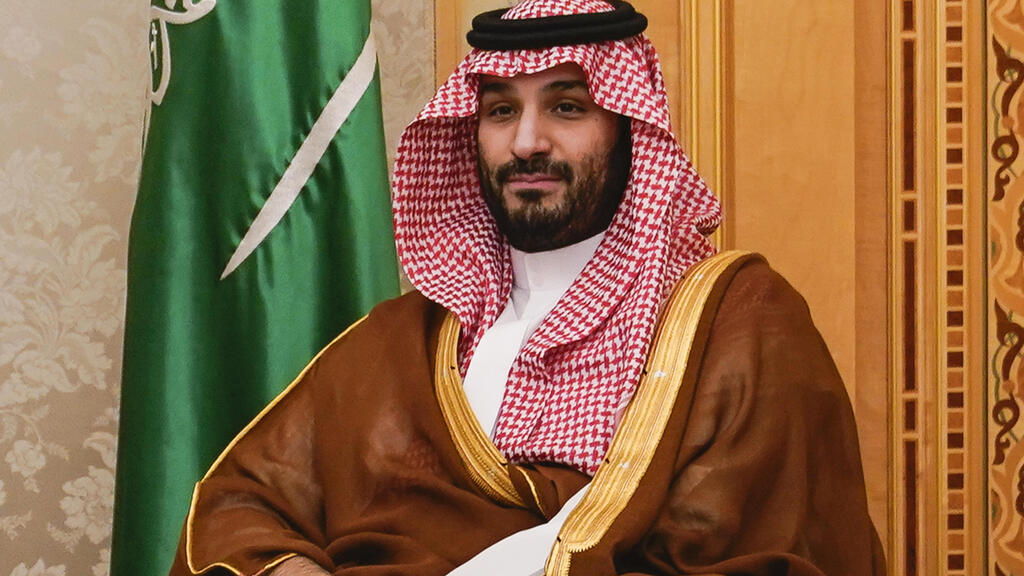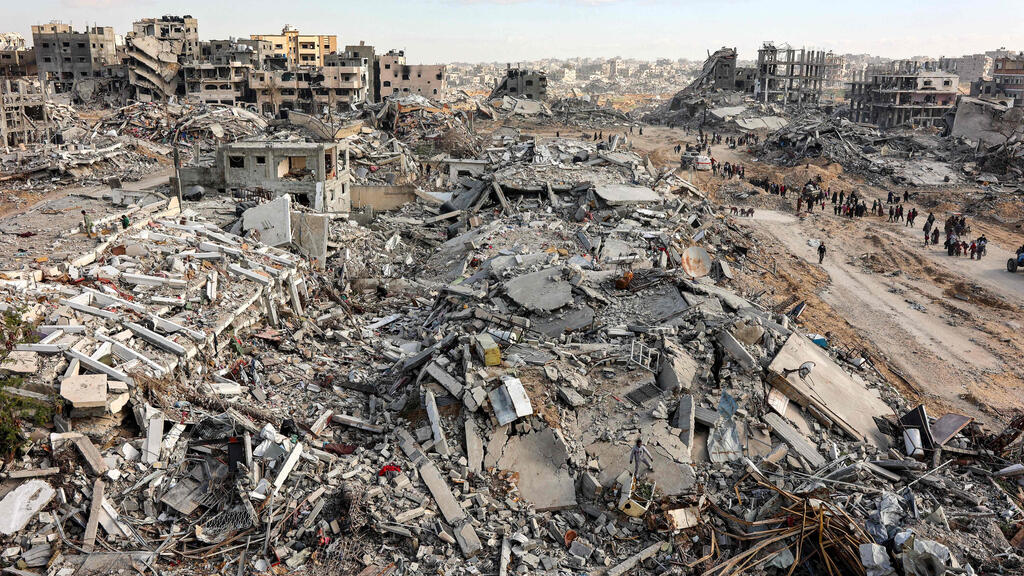Getting your Trinity Audio player ready...
In the meeting in Washington with Prime Minister Benjamin Netanyahu last week, U.S. President Donald Trump said that Saudi Arabia was not demanding the establishment of a Palestinian state in exchange for normalizing relations with Israel. The Saudi Foreign Ministry was quick to respond, denying that claim. Riyadh feels the need to reiterate its position at every opportunity, after reports, especially in the Israeli press that it was only paying lip service to the Palestinians. The truth is more complex.
Since the October 7 massacre, the Palestinian question has become central in Saudi and Arab public opinion and the regime cannot ignore that fact, nor can it allow criticism from its own citizens and others.
The price for normalization has risen since the start of the war and as the death toll in Gaza has increased. The scenes of devastation in the Strip have added further pressure and have made pragmatism more difficult.
Trump's comments about removing Gazans to neighboring countries have caused the opposite effect in Riyadh and have compelled the Saudi leaders to align their position with the pan-Arab stance, rejecting the president's plan. The Saudis also were enraged by Netanyahu's comments 'made in jest,' on right-wing channel 14, when he said Saudi Arabia was large enough to settle the Palestinians in its territory. If more such comments are made, the hope for normalization could fade.
Saudi rhetoric became more critical of Israel culminating in a statement from Saudi Crown Prince Mohammed Bin Salman last November when he blamed Israel for committing 'collective genocide' in Gaza, contradicting previous statements including in interviews to the American media.
Destruction in Khan Younis
The Saudis also became advocates for the Palestinians in a way they had never been before, wishing to ride the anti-Israel wave sweeping the region. They are seeking a role for themselves as leaders of the Palestinian cause and have created international alliances to promote Palestinian statehood.
For the Saudi regime, appearances are no less important than content and they hope to be seen as having laid the groundwork for a Palestinian state, although they understand one would not be established now.
Since the start of the war, Riyadh has called for a cease-fire in Gaza and when one was agreed, they remarked that it would bring an end to the "barbaric Israeli aggression." The Saudis not only called for an IDF withdrawal from the Strip but have now added a demand for an Israeli withdrawal "from all Arab lands," referring to South Lebanon and the Syrian Golan Heights.
The kingdom was still interested in normalization with Israel if it would provide the American rewards that would otherwise be withheld. A positive spin on the situation could be made by regarding the Saudi position as a counter measure to radical regional elements such as Iran and Turkey. Riyadh ties the cease-fire in Gaza to normalization, making it a prerequisite for the process of normalization to begin.
Under the Trump administration Saudi Arabia would more easily back down from its position regarding a Palestinian state but would demand terms
After the cease-fire was announced, Saudi Foreign Minister Faisal bin Farhan Al Saud said it was in the kingdom's interest for it to be fully implemented and that all regional players must have a clear message for Hamas and others, not to disrupt it.
 Dr. Yoel GuzanskyINSS
Dr. Yoel GuzanskyINSSUnder the Trump administration, the Saudis would find it easier to back down from their expressed position on the Palestinian question, but they would demand terms to do so including ensuring the cease-fire is permanent, the IDF withdraws from Gaza and rehabilitation of the Strip begins. Riyadh would likely play a role in the international mechanism responsible for the rebuilding. It also wants to see the Palestinian Authority return to Gaza to replace Hamas.
Trump's policy on Iran could affect the Gulf state's position. Improving Saudi Arabia's strategic situation would allow it to take more risks. The more decisive Trump is on Iran and the need to prevent it from obtaining nuclear weapons, the easier it would be for the Saudis and perhaps for Israel to show flexibility when it comes to the Palestinians.
Get the Ynetnews app on your smartphone: Google Play: https://bit.ly/4eJ37pE | Apple App Store: https://bit.ly/3ZL7iNv
MBS hopes to be king, perhaps this year, and requires internal and external legitimacy. The Palestinian question is the key for that legitimacy to be given, in Saudi Arabia and elsewhere in the Arab world. Riyadh understands that there will be no Palestinian state established in the near future but wants to see concrete Israeli and American steps taken, even if gradually. In exchange they may agree to a gradual normalization that would expose them to less of a risk.
Dr. Yoel Guzansky is a senior researcher and head of the Gulf Program at the Institute for National Security Studies (INSS)






